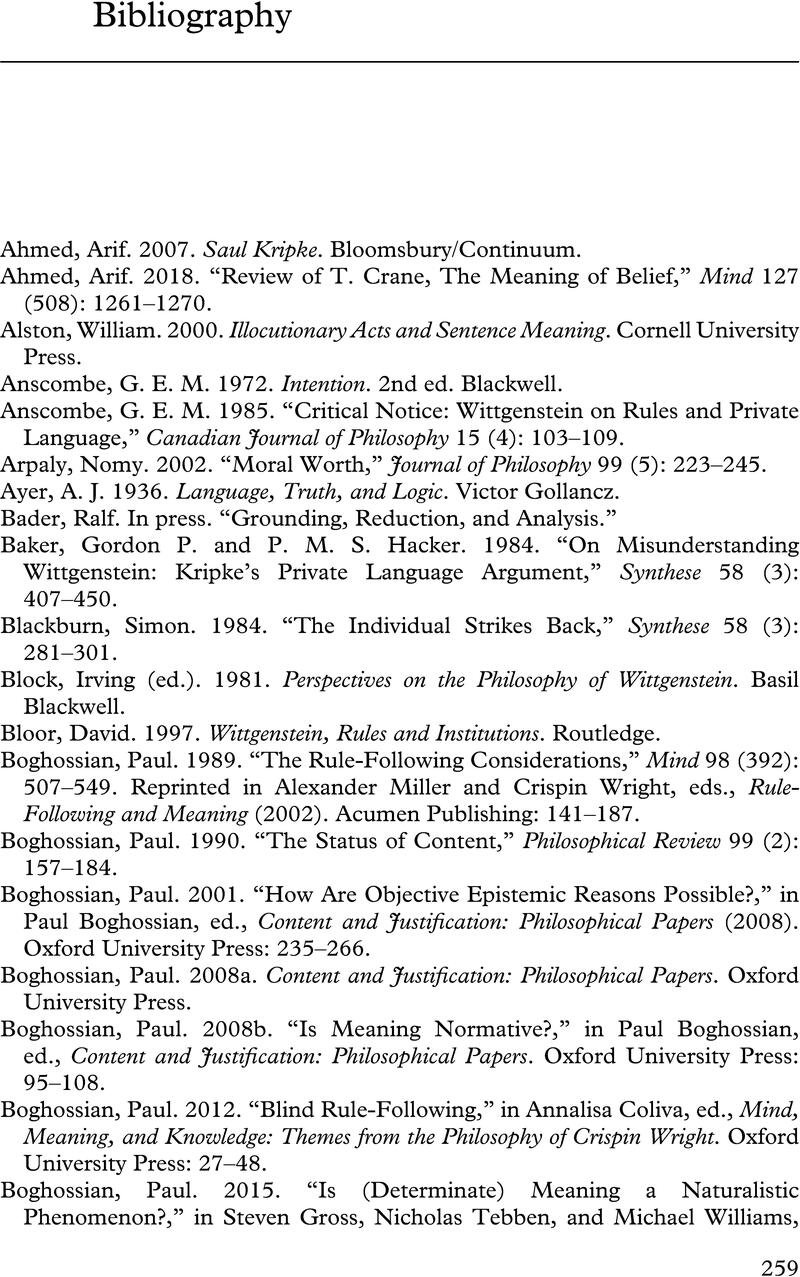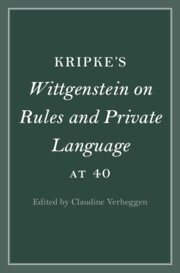Book contents
- Kripke’s Wittgenstein on Rules and Private Language at 40
- Cambridge Philosophical Anniversaries
- Kripke’s Wittgenstein on Rules and Private Language at 40
- Copyright page
- Dedication
- Contents
- Contributors
- Acknowledgments
- Introduction
- 1 Kripke’s Wittgenstein’s Skepticism about Rules and Meaning
- 2 Putting Wittgenstein Back into Kripkenstein:
- 3 Answering Kripke’s Skeptic
- 4 Wittgensteinean Notions of Uniformity and Kripkensteinean Skepticism
- 5 Wittgenstein’s Naturalism and the Skeptical Paradox
- 6 Kripke and Wittgenstein on Rules and Meaning
- 7 Semantic Normativity, Properly So Called
- 8 What Is the Skeptical Problem? Wittgenstein’s Response to Kripke
- 9 How Not to Brush Questions under the Rug
- 10 Quadders and Zombies
- 11 Communitarianism, Interpersonalism, and Individualism in Kripke’s “Skeptical Solution”
- 12 “Considered in Isolation”
- 13 The Meaning of Meaning Ascriptions
- Bibliography
- Index
- References
Bibliography
Published online by Cambridge University Press: 22 February 2024
- Kripke’s Wittgenstein on Rules and Private Language at 40
- Cambridge Philosophical Anniversaries
- Kripke’s Wittgenstein on Rules and Private Language at 40
- Copyright page
- Dedication
- Contents
- Contributors
- Acknowledgments
- Introduction
- 1 Kripke’s Wittgenstein’s Skepticism about Rules and Meaning
- 2 Putting Wittgenstein Back into Kripkenstein:
- 3 Answering Kripke’s Skeptic
- 4 Wittgensteinean Notions of Uniformity and Kripkensteinean Skepticism
- 5 Wittgenstein’s Naturalism and the Skeptical Paradox
- 6 Kripke and Wittgenstein on Rules and Meaning
- 7 Semantic Normativity, Properly So Called
- 8 What Is the Skeptical Problem? Wittgenstein’s Response to Kripke
- 9 How Not to Brush Questions under the Rug
- 10 Quadders and Zombies
- 11 Communitarianism, Interpersonalism, and Individualism in Kripke’s “Skeptical Solution”
- 12 “Considered in Isolation”
- 13 The Meaning of Meaning Ascriptions
- Bibliography
- Index
- References
Summary

Information
- Type
- Chapter
- Information
- Kripke's Wittgenstein on Rules and Private Language at 40 , pp. 259 - 273Publisher: Cambridge University PressPrint publication year: 2024
